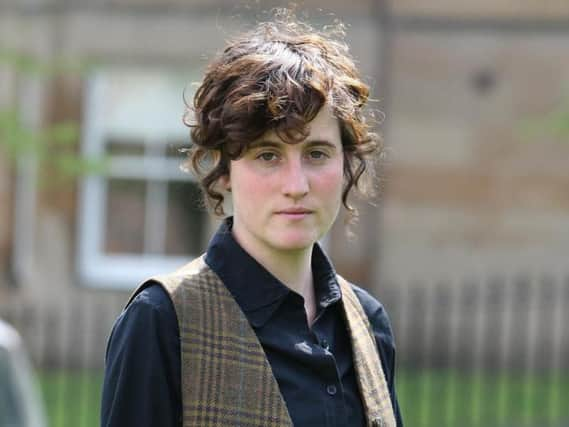Chris Marshall: Scotland needs undercover policing inquiry


Eight years on, Ms Gifford is among a network of campaigners fighting for an inquiry into the activities of undercover operatives in Scotland.
A member of the campaign group Plane Stupid, she was one of seven protesters arrested after occupying a taxiway at Aberdeen airport in March 2009.
Advertisement
Hide AdAdvertisement
Hide AdShe later recorded exchanges with men claiming to be from Strathclyde Police who indicated they could pay her to become a spy.
Ms Gifford is currently attempting to win a judicial review of the Home Office’s decision not to extend the Undercover Policing Inquiry led by Sir Christopher Pitchford to Scotland and the Scottish Government decision not to set up its own inquiry. Instead, ministers in Edinburgh have tasked HM Inspectorate of Constabulary in Scotland (HMICS) with carrying out a “review” of undercover policing.
But while the English inquiry will look at police operations dating back to 1968, the remit of the HMICS review extends back only as far as 2000. Campaigners have also raised concerns over the credibility of the HMICS, claiming the review amounts to “police officers marking their own homework”.
Last week 18 leading activists announced they intend to boycott the review and will only take part once a full public inquiry is announced.
While there is no reason to doubt the independence of HMICS, the boycott badly undermines the credibility of its review.
Perhaps aware of this, justice secretary Michael Matheson will today meet three of the leading campaigners, all of whom have been granted “core participant” status by the Pitchford inquiry.
They include Helen Steel, who had a two-year relationship in the 1990s with John Dines before learning he was an undercover officer with the Metropolitan Police.
She was one of seven women who received an “unreserved apology” and compensation from the force for being deceived into sexual relationships with undercover officers.
Advertisement
Hide AdAdvertisement
Hide AdAlso meeting the justice secretary is Donal O’Driscoll, an environmentalist allegedly spied on by notorious undercover officer Mark Kennedy in the run-up to the G8 summit at Gleneagles in 2005.
The Scottish Government position is that it remains “disappointed” by the Home Office’s decision not extend Pitchford north of the Border. Campaigners have already won a judicial review of the Home Office decision in Northern Ireland and should Ms Gifford’s action be successful in Scotland, the courts may take the dilemma out of the SNP’s hands.
If not, those spied on by police in Scotland face the prospect of being the only ones unable to get accountability for what happened to them.
Nor is this an issue affecting only a small number of environmentalists and political activists.
The scope of the Pitchford inquiry, which is expected to hear evidence of undercover policing during the 1984-5 miners’ strike and the poll tax riots, shows potentially how widespread the activity was and how many people it affected.
Scotland cannot be left behind. Should the English inquiry not be extended north of the Border, then Scottish ministers must act to fill the void.